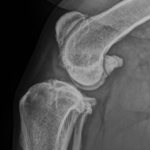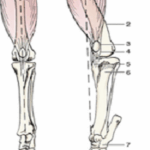If you find your dog is currently quite itchy, you’re not alone. Spring time is the most common time for dogs to show signs of allergic skin disease.
Just like people, dogs can suffer from pollen allergies. However, rather than getting hay fever or asthma, dogs then to get itchy skin. The most common areas they scratch include the ears, belly, paws and armpits, though any area can be affected.
So at what point should you take your dog to the vet? There are a few key signs that your pet needs vet attention. These include:
- A bad smell coming from the ears or skin
- The ears being affected – this may show as the dog shaking their head, squelchy noises when you rub the dogs ear, discharge in the ears, or a rough appearance to the skin near the ear canal
- Small lumps or scabs forming in the skin
- The dog causing areas to bleed
- Losing patches of hair
- The dog constantly scratching and you feel it is affecting their quality of life
These are signs of secondary infections occurring or precursors to more severe problems, and therefore need a vet to assess your pet and start treatment.
For mild cases of itchy skin, there is a lot you can do at home to help your pet. Even for more severe cases, using these following tips can help reduce the frequency of visits to the vet, and make your pet much more comfortable.
The first thing we recommend is making sure your pet has no fleas. A kid’s nit comb can work well to check for fleas and flea dirt. If you find fleas, you must use a quality product such as Activyl or Comfortis to control them.
We now recommend bathing allergy dogs weekly during the pollen season. We recommend using an oatmeal based shampoo, which you leave on for 15 minutes before rinsing it off. Follow this with an oatmeal based conditioner, which you leave on the coat (don’t rinse this off). Also rinse your dog off after they have been for a swim in the ocean, as the salt from the water can be a bit irritating.
Clean your dogs ears at least twice weekly using a product such as Epiotic. This will help prevent infections becoming established and keep their ears clear. Also give the ears a good clean after swimming.
I also find a zinc and fatty acid supplement, such as Megaderm, can help reduce itchiness by around 70-80% in some cases. This is simply added to your dog’s food each day.
Antihistamines can also be used in some cases, but we recommend consulting a vet before starting these.
As with so many conditions, early intervention can prevent a big problem down the line, so make sure you deal with your dog’s itchy skin as soon as it starts.




Very helpful